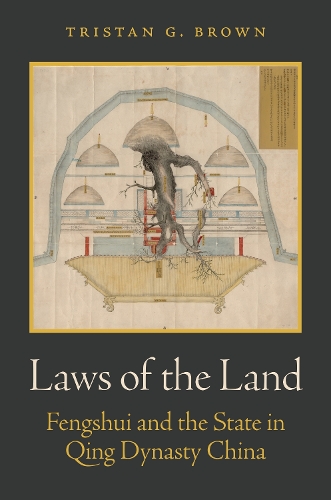
Laws of the Land: Fengshui and the State in Qing Dynasty China
(Hardback)
Available Formats
Publishing Details
Laws of the Land: Fengshui and the State in Qing Dynasty China
By (Author) Tristan G. Brown
Princeton University Press
Princeton University Press
13th March 2024
United States
Classifications
General
Non Fiction
Impact of science and technology on society
History of science
Social and cultural history
Legal history
349.51
Physical Properties
Hardback
356
Width 156mm, Height 235mm
Description
A groundbreaking history of fengshuis roles in public life and law during Chinas last imperial dynasty
Today the term fengshui, which literally means wind and water, is recognized around the world. Yet few know exactly what it means, let alone its fascinating history. In Laws of the Land, Tristan Brown tells the story of the important rolesespecially legal onesplayed by fengshui in Chinese society during Chinas last imperial dynasty, the Manchu Qing (16361912).
Employing archives from Mainland China and Taiwan that have only recently become available, this is the first book to document fengshuis invocations in Chinese law during the Qing dynasty. Facing a growing population, dwindling natural resources, and an overburdened rural government, judicial administrators across China grappled with disputes and petitions about fengshui in their efforts to sustain forestry, farming, mining, and city planning. Laws of the Land offers a radically new interpretation of these legal arrangements: they worked. An intelligent, considered, and sustained engagement with fengshui on the ground helped the imperial state keep the peace and maintain its legitimacy, especially during the increasingly turbulent decades of the nineteenth century. As the century came to an end, contentious debates over industrialization swept across the bureaucracy, with fengshui invoked by officials and scholars opposed to the establishment of railways, telegraphs, and foreign-owned mines.
Demonstrating that the only way to understand those debates and their profound stakes is to grasp fengshuis longstanding roles in Chinese public life, Laws of the Land rethinks key issues in the history of Chinese law, politics, science, religion, and economics.
Author Bio
Tristan G. Brown is assistant professor of history at the Massachusetts Institute of Technology.
